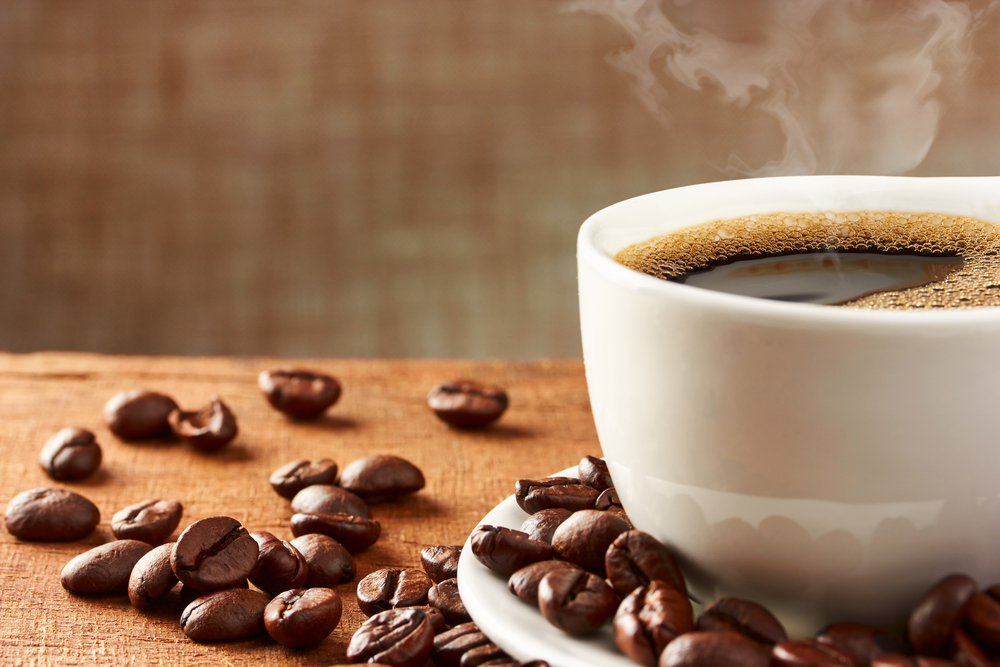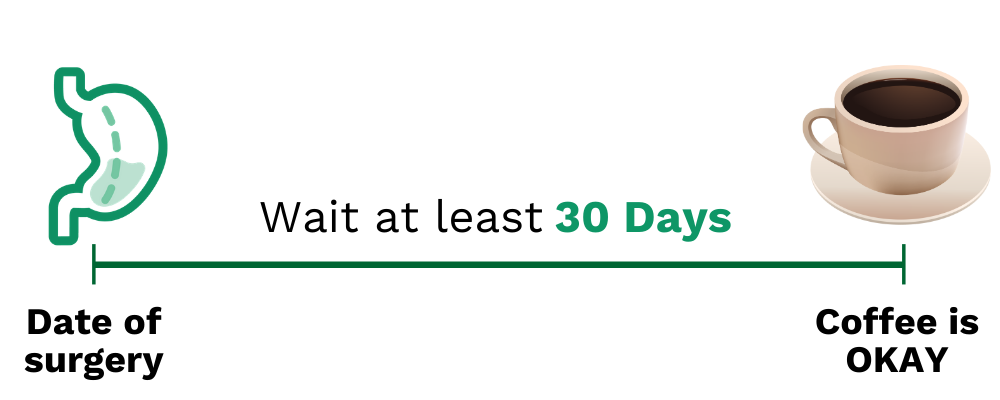ENTER YOUR EMAIL ADDRESS TO UNLOCK
15% OFF
on your first order
Some exclusions apply.
Due to the acidity, it can induce regurgitation, reflux, and indigestion for some people which can lead to damage in the esophagus and potentially lead to GERD .
Side effects of too much caffeine Like with anything in life, too much caffeine can be an issue. Yes, caffeine does have several positive benefits , but one must not over-consume or they may experience some side effects.
Here are some side effects to consuming too much caffeine:
Increased heart rate
Increased feeling of anxiety
Feeling jittery
May cause diarrhea
May cause nausea
May cause difficulty sleeping
May cause headaches
How should your coffee look Once you are able to start drinking coffee again it will probably look different than what you are used to.
After all, caffeine is not the only part of your morning coffee that you need to be wary of after bariatric surgery.
If you were used to that fancy special coffee from Starbucks, this might be a difficult adjustment for you.
Many of the most popular “dressed up” coffee drinks are loaded with cream, sugar, and calorie-dense flavorings.
Ahem…Caramel Macchiato (250 calories)
This doesn’t mean you can’t enjoy your morning coffee. It just means you need to make some meaningful modifications to keep you on track with your diet as well as keeping you healthy and not on caffeine overload.
[box]
Here are some tips for drinking coffee on a calorie budget:
Use non-fat or low-fat creamer Use skim milk, almond milk, or oat milk Leave off the toppings like whipped cream Don’t add flavored syrups (or try these low calorie ones ) Drink it black (this could be hard if you aren’t use to it) Order/drink a smaller size Limit how many days a week you drink coffee Limit how many times a day you drink coffee [/box]
The great thing about these tips is that you can stack them (use more than one) and you can apply them when ordering at the drive-thru or when you are making coffee at home.
Now, let’s take a look at some options from a couple of well-known coffee shops, Starbucks and Dunkin Donuts.
Safe/low-calorie coffee options (Good Options)
[table id=20 /]
Bad/high-calorie/high-fat (Bad Options – Stay Away)
[table id=19 /]
Hopefully you can tell which ones you should avoid just by looking at the calories alone.
You should never get that many calories from a drink, especially when you are on a bariatric diet.
You can also see that the “bad” options are extremely high in sugar as well, which can be addictive for a lot of patients, so tread carefully.
If you absolutely have to have one of the fancier coffees, then make sure to get the smallest size possible and use the above tips to help drive those calories down even more.
We aren’t saying that you will never be able to enjoy coffee again like you used to, but eating and drinking anything you wanted is what got you here in the first place.
So why not put your best foot forward and do everything in your power to make your coffee work to your benefit.
What about decaf coffee after bariatric surgery? Decaf will still contain the same acidity that regular coffee has which can potentially lead to issues like acid reflux and GERD.
A positive for decaf coffee compared to regular coffee is since caffeine is virtually non-existent in decaf, you aren’t at that higher risk for decreased nutrient absorption.
The same rule applies here as it does with regular coffee. Just because it’s decaf does not mean you can add a bunch of unnecessary calories through creamer, sugar, or flavored syrups.
One of the most important things to consider after bariatric surgery is the fact that you have to stay hydrated and drink enough fluids every day.
The best way to do this is water, of course, but it is okay to add a small amount of coffee in if you absolutely need to.
Just remember, as with regular coffee, it is recommended that you wait at least 30 days after surgery before adding it back in.
The longer you wait the better because it will allow your body to fully recover and heal properly while decreasing the possibility of damage.
One good thing about decaf compared to regular coffee is that it won’t leave you feeling jittery or over-stimulated which means you can enjoy it later in the day without the possibility of it disrupting your sleep .
Key takeaways First and foremost, always check with your doctor before making any decisions that you are uncertain about after surgery.
Make sure you are waiting at least 30 days post-op before introducing any coffee back into your daily life. The longer you wait the better because it will allow your body to heal properly. This goes for both regular and decaf.
Always try to make your coffee contain as few calories as possible, especially if you aren’t a black coffee drinker. Black coffee is by far the healthiest option but we understand that not everyone can handle the taste.
Use what we laid out in this article to make healthy informed choices.
Finally, if at any point you are finding that drinking coffee is causing you any kind of issues, please stop immediately and contact your doctor.

